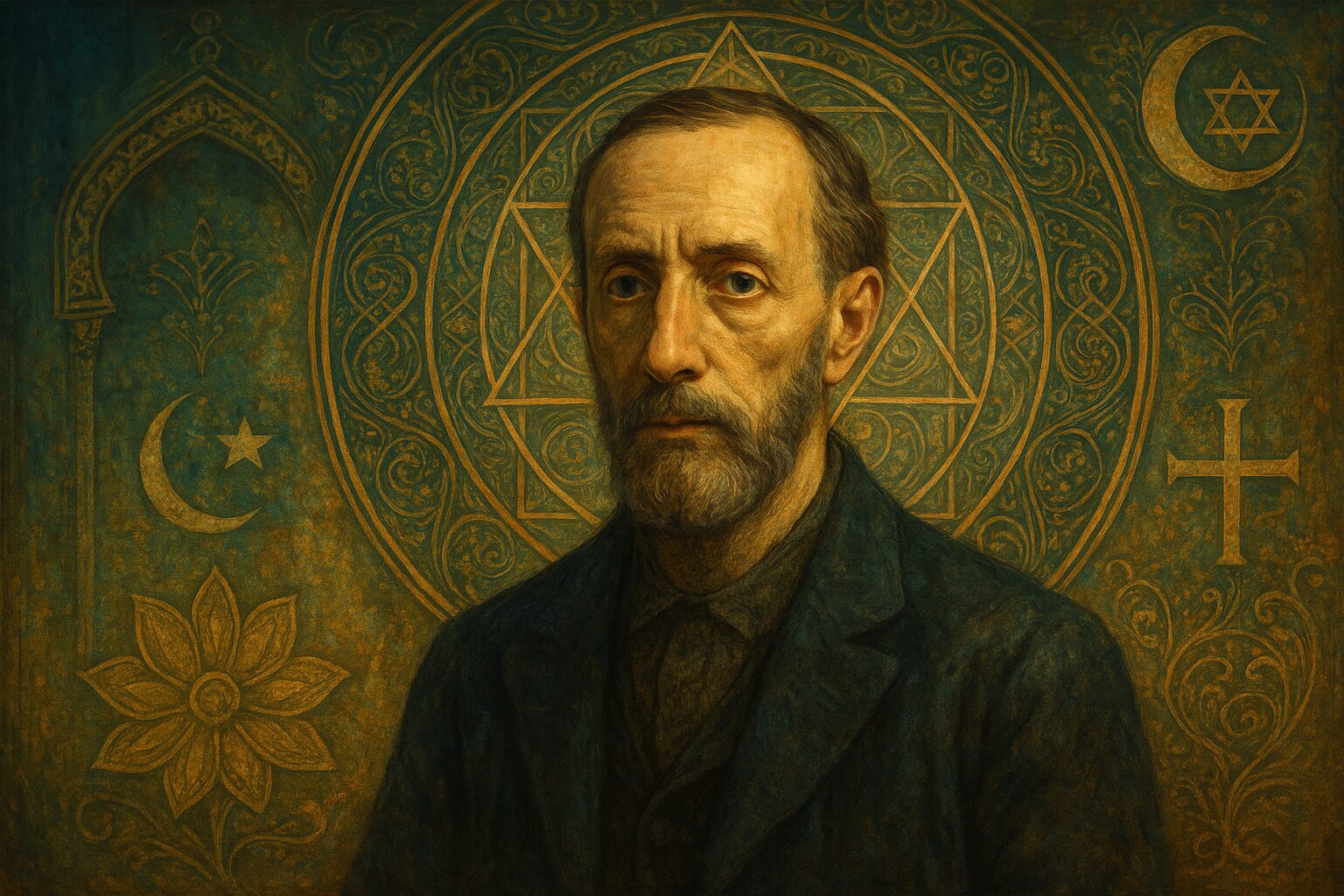Occult France Series
“Metaphysics is the knowledge of what lies beyond nature, of that which is beyond the domain of individual and corporeal existence.”
— René Guénon
Introduction: A Voice from the Depths of the Sacred
In the decaying twilight of modernity, one voice rose from the ruins of the West to remind mankind of the eternal. René Guénon (1886–1951), the French metaphysician and esotericist, shattered the illusions of progress and pointed us back toward the Primordial Tradition. His thought formed a bridge between Western esotericism and Eastern metaphysics, reviving a current of sacred knowledge hidden beneath the surface of history.
Guénon and the Reign of Quantity
At the heart of Guénon’s work is a rigorous metaphysical critique of modern civilization. In The Reign of Quantity and the Signs of the Times, he outlines how the modern world has lost its connection to qualitative being—replacing sacred hierarchies with mechanistic abstractions.
“The modern world is not only profane, it is anti-traditional.”
For Guénon, quantity over quality is not just a civilizational error, but a spiritual catastrophe—one that leads humanity deeper into Kali Yuga, the dark age.
Return to the Origin: Tradition and Initiation
Guénon’s solution is not reform, but return. Return to the metaphysical center, to initiation, to esoteric knowledge that transcends religious dogma and historical accidents. His seminal texts like Introduction to the Study of the Hindu Doctrines and Man and His Becoming According to the Vedanta reflect his belief in a universal metaphysical truth, veiled in the various traditions but always present.
In this vision, the Rosicrucian, the Sufi, and the Vedantin are initiates of the same eternal flame.
The Invisible Center: Guénon’s Influence on French Occultism
Although often labeled as an academic metaphysician, Guénon’s influence on the French esoteric underground was profound. He corresponded with Martinists, Theosophists, and members of esoteric societies, though he often critiqued their lack of metaphysical rigor.
His move to Cairo and conversion to Islam (as Abdul Wahid Yahya) was not an abandonment of the West, but a deepening into the core of Tradition. His vision of initiation without borders challenged the provincialism of Western occultism.
Guénon’s metaphysics were not speculative; they were weapons of light aimed at the heart of illusion.
Legacy: A Gnostic of the Absolute
In an age of collapsing meanings, Guénon remains a strange beacon—a guardian of symbols, an expositor of the Real. His works continue to circulate among Traditionalists, occult thinkers, Sufi mystics, and seekers of the perennial philosophy. His message is timeless:
- The Real is One.
- Knowledge is sacred.
- The modern world is not the measure of truth.
Recommended Readings
- The Reign of Quantity and the Signs of the Times
- The Crisis of the Modern World
- Man and His Becoming According to the Vedanta
- Symbols of Sacred Science
